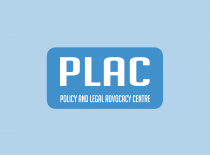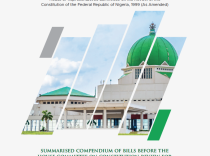President Muhammadu Buhari at a joint session of the National Assembly on Wednesday 14, 2016 presented the 2017 Budget proposal of N7.298trillion. The figure which he described as a 20.4% increase in comparison with the 2016 estimates comprises:
- Statutory transfers of N419.02 billion;
- Debt service of N1.66 trillion;
- Sinking fund of N177.46 billion to retire certain maturing bonds;
- Non-debt recurrent expenditure of N2.98trillion; and
- Capital expenditure of N2.24 trillion (including capital in Statutory Transfers).
According to the President, the Budget which he termed “The Budget of Recovery and Growth” is based on economic recovery and growth strategy, which will provide a clear road map of policy actions and steps designed to bring the economy out of recession to a path of steady growth and prosperity. The 2017 Budget will focus on rapid development of infrastructure including rails, roads and power in 2017.
Speaking on the 2016 budget performance, President Buhari stated that the budget was prepared on the principles of zero based budgeting to ensure that resources were prudently managed and utilized solely for the public good. He added that the same principles has been adopted in the 2017 budget. He also mentioned that the implementation of the 2016 budget was hampered by the combination of relatively low oil prices in the first quarter of 2016 and disruptions in crude oil production which led to significant shortfalls in projected revenue. According to him, as at 30th September 2016, aggregate revenue inflow was N2.17trillion or 25% less than prorated projections. Similarly, N3.58trillion had been spent on both recurrent and capital expenditure. Nevertheless, debt service obligations and personnel cost were met and overhead cost had been largely covered. He noted also that the N753.6billion which was released for capital expenditure at the end of October 2016 is one of the highest capital releases in Nigeria’s recent history.
Elucidating on the 2017 Budget Priorities, the President explained that the government’s focus in 2017 will be a continuation of the 2016 plans of diversification of the economy, job creation, agriculture, manufacturing, solid minerals and services. He added that he will prioritize investments in human capital development especially in education and health and to achieve this, the government will continue to improve governance by enhancing public service delivery and securing life and property.
Speaking on the assumptions, revenue projections and fiscal deficit on which the 2017 Budget is premised, the President stated that the 2017 Budget is based on a benchmark crude oil price of $42.5 per barrel, an oil production estimate of 2.2 million barrels per day, and an average exchange rate of N305 to $1. Based on these assumptions, the aggregate revenue available to fund the budget is N4.94trillion which is 28% higher than 2016 projections. Non-oil revenues comprising Companies Income Tax, Value Added Tax, Customs and Excise duties and Federation Account levies is expected to contribute N1.373trillion. Furthermore, projections for Independent Revenues is estimated at N805.57billion, while N565.1billion is expected from various Recoveries and N210.9billion from mining and other revenue sources.
Explaining the 2017 budget recurrent expenditure, he stated that a significant portion had been allocated to the payment of salaries and overhead costs in institutions that provides critical public services. The budgeted amounts for these items include:
- Ministry of Interior- N482.37billion
- Ministry of Education- N398.01billion
- Ministry of Defence- N325.87billion
- Ministry of Health- N252.87billion
Key capital spending provisions in the 2017 Budget include:
- Power, Works and Housing- N529billion
- Transportation- N262billion
- Special Intervention Programmes N150billion
- Defence- N140billion
- Water Resources- N85billion
- Industry, Trade and Investment- N81billion
- Interior- N63billion
- Education-N50billion
- Universal Basic Education Commission-N92billion
- Health- N51billion
- Federal Capital Territory- N37billion
- Niger Delta Ministry- N33billion
- Niger Delta Development Commission-N61billion
- Special Intervention Programme-N100billion
In addition, the President stated that the 2017 Budget estimates retains the allocation of N500billion to the Special Intervention programme consisting of the Home-grown School Feeding Programme, Government Economic Empowerment programme, N-Power Job Creation Programme which provides loans for traders and artisans, Conditional Cash Transfers to the poorest families and the new Family Homes Fund (social housing scheme).
The President concluded by describing the Budget as representing a major step in delivering on desired goals through strong partnership across the various arms of government and between public and private sectors to create inclusive growth.





